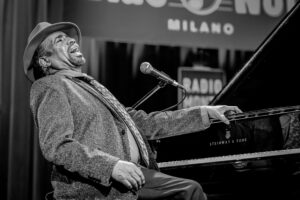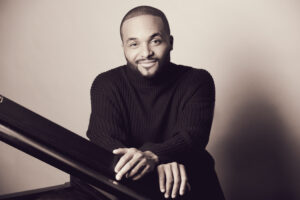
The Legendary Johnny O’Neal After more than 45 years as a professional pianist, vocalist and entertainer, Johnny O’Neal has earned the title of “master” with fellow musicians and audiences around the world. Highlights of his awe-inspiring career include stints with Ray Brown, Milt Jackson and Art Blakey’s Jazz Messengers, as well as a Carnegie Hall debut in 1985 on solo piano opening for Oscar Peterson and induction into the Alabama Jazz Hall of Fame in 1998. While playing with Blakey, he accompanied some of the great jazz divas, including Sarah Vaughan and Carmen McRae. O’Neal has also been tapped for appearances by Dizzy Gillespie, Joe Pass, Nancy Wilson, Anita O’Day, Lionel Hampton, Kenny Burrell, Sonny Stitt, Benny Golson, Eddie “Lockjaw” Davis and Clark Terry, among others. Performances in Canada, Europe, Australia, Japan, China, Israel and South Africa have gained him an international following, and he is beloved by audiences around the U.S. Yet, he remains a fixture on the New York jazz scene, regularly playing in local clubs or stopping by a jam session to check out the young talent. A stint in his band has become a coveted apprenticeship among young players, comparable to that of Betty Carter or Art Blakey. He is the tie that binds the classic jazz traditions to the evolution of the form, making him legendary in his own right. The Detroit native considers himself a piano player first, but was encouraged to sing more in his sets by blues great Joe Williams. He recalls Williams advising him, “If you’ve got it, flaunt it!” Astonishingly, he is largely self-taught. His playing evokes the influences imbued in him by his idols Oscar Peterson and Art Tatum, with a nod to bebop master Barry Harris (who first heard O’Neal play as a teenager in Detroit). He has reshaped these elements into his own very swinging and melodic approach. In live performances, he is apt to catch his audience off-guard with his blues shouting, soulfully rendered yet unpretentious vocalizations or seemingly effortless scatting. No two sets are ever alike. O’Neal explains, “I’m a tune guy. I know 1,500 songs. My father was a pianist and singer who emphasized that learning lyrics creates dynamics and a better interpretation of melody. I rehearse so that the bassist, drummer and I can get familiar with each other’s styles—not to set the songs we’ll play.” Spoken like a true legend.

Sullivan Fortner: For the past decade, Sullivan Fortner has been stretching deep-rooted talents as a pianist, composer, band leader and uncompromising individualist. The GRAMMY Award-winning artist out of New Orleans received international praise as both key player and producer for his collaborative work on The Window (Mack Avenue, 2018), alongside multi-GRAMMY winner, vocalist-composer Cecile McLorin Salvant. As a solo leader, he has released Moments Preserved (Decca, 2018) and Aria (Impulse!, 2015) to critical acclaim, and he’s only getting started. Now based in New York, Fortner has earned recognition in multiple DownBeat Critics Poll categories, winning first place in Rising Star Piano and Rising Star Jazz Artist. In addition to associations with such diverse voices as Wynton Marsalis, Paul Simon, Diane Reeves, Etienne Charles and John Scofield, Fortner’s frequent and longtime collaborators have included Ambrose Akinmusire, Dee Dee Bridgewater, Stefon Harris, Kassa Overall, Tivon Pennicott, Peter Bernstein, Nicholas Payton, Billy Hart, Gary Bartz, Christian Scott aTunde Adjuah, Fred Hersch and the late Roy Hargrove. Recent collaborations include GRAMMY-nominated releases Dear Love (Empress Legacy) and Generations from leaders Jazzmeia Horn and The Baylor Project, respectively. A highly-sought improviser, Fortner has performed across the country and throughout the world at such cultural institutions as Snug Harbor, New Orleans Center for the Creative Arts, Sweet Lorraine’s and The Jazz Playhouse in New Orleans, and Jazz at Lincoln Center, Jazz Standard and Smalls Jazz Club in New York City. He’s appeared at celebrated festivals, including Newport, Monterey, Discover, Tri-C and Gillmore Keyboard, among others. In 2019, Fortner brought his band to the historic Village Vanguard for a week-long engagement he would reprise in 2020 as a virtual performance during lockdown. His notable studio contributions include work on Etienne Charles’s Kaiso (Culture Shock, 2011), Donald Harrison’s Quantum Leap (FOMP, 2010), and Theo Croker’s The Fundamentals (Left Sided Music, 2007). Playing solo or leading an orchestra, Fortner engages harmony and rhythmic ideas through curiosity and clarity. Within phrases, he finds universes, and listeners often hear how he’s moved by each note he explores. Coming up in New Orleans, Fortner began playing piano at age 7, following a storied lineage of improvisers, masters of time and every iteration of the blues. He earned his Bachelor of Music from Oberlin Conservatory and Master of Music in Jazz Performance from Manhattan School of Music (MSM). A champion of mentorship, Fortner has offered masterclasses at MSM, New Orleans Center for Creative Arts (NOCCA), Purdue University, Lafayette Summer Music Workshop, Belmont University and Oberlin Conservatory where he held a faculty position. Pulling distinct elements from different eras, Fortner’s artistry preserves the tradition and evolves the sound. He seeks connections among different musical styles that are at once deeply soulful and wildly inventive. Both his works and his insights have been featured in culturally iconic publications, from The New York Times to The Root. Accolades include the 2015 Cole Porter Fellowship awarded by the American Pianists Association, Leonore Annenberg Arts Fellowship, the 2016 Lincoln Center Award for Emerging Artists and, in 2020, the prestigious Shifting Foundation Grant for artistic career development.




